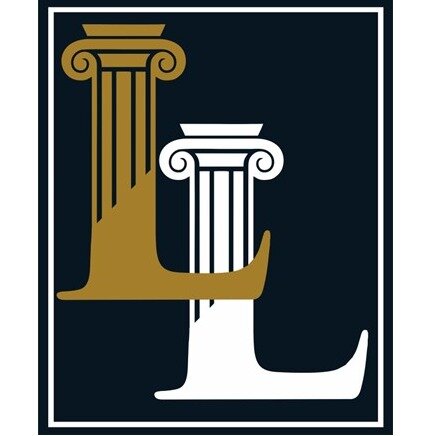Best Elder Abuse Law Lawyers in Manila
Share your needs with us, get contacted by law firms.
Free. Takes 2 min.
List of the best lawyers in Manila, Philippines
About Elder Abuse Law in Manila, Philippines
Elder Abuse Law in Manila, Philippines, is designed to protect the welfare and rights of older adults. It addresses the various forms of abuse that elders might face, including physical, emotional, sexual, and financial abuse, as well as neglect. The legislation aims to prosecute offenders and provide remedies for victims, ensuring that senior citizens live in dignity, free from exploitation or harm. Amendments to existing laws have strengthened local policies, allowing for more comprehensive elder protection measures.
Why You May Need a Lawyer
There are several situations where you might require legal assistance concerning Elder Abuse Law. For instance, if a caregiver or family member is suspected of mistreatment, a lawyer can help navigate the legal processes to protect the elder's rights. Legal help may also be necessary when addressing financial exploitation, such as unauthorized transactions or the alteration of wills and estate documents. Additionally, if institutional abuse is suspected within elderly care facilities, a lawyer can advocate for the safety and well-being of the victim.
Local Laws Overview
The local laws relevant to Elder Abuse Law in Manila include the Anti-Violence Against Women and Their Children Act, the Expanded Senior Citizens Act, and other applicable provisions under the Revised Penal Code. The laws provide penalties for abuse and establish procedures for reporting and addressing allegations. In addition to criminal penalties, civil remedies are available, allowing victims to seek compensation. Protective orders and support services are also part of the legislative framework aiming to safeguard elders from abuse.
Frequently Asked Questions
What constitutes elder abuse under the law?
Elder abuse includes physical, emotional, sexual abuse, financial exploitation, and neglect, impacting an elder's well-being or financial security.
Who can report elder abuse?
Anyone who suspects elder abuse, whether a family member, friend, neighbor, or professional, can report it to authorities. There are mandated reporters, such as healthcare workers, who are legally required to report suspected abuse.
What should I do if I suspect elder abuse?
If you suspect elder abuse, document any evidence of abuse or neglect and report your suspicions to the proper authorities or a legal professional who can assist you in protecting the victim.
How can an elder protect themselves from financial abuse?
Elders can protect themselves by appointing a trusted power of attorney, regularly reviewing financial statements, and seeking financial advice from certified professionals.
What legal consequences can an abuser face?
Legal consequences can include criminal charges resulting in imprisonment or fines, protective orders, and civil actions for damages.
Can family members help stop elder abuse?
Yes, family members can help by remaining vigilant, supporting the elder's decisions, providing emotional support, and involving authorities if abuse is suspected.
Are there specific institutions for elder abuse cases?
The Department of Social Welfare and Development (DSWD) and local government units in Manila have specific branches to handle cases and provide support for elder abuse.
What rights do elders have under Philippine law?
Elders have the right to live in dignity, free from abuse and neglect, and to receive proper care and access to social services. They are also entitled to participate in decision-making about their welfare.
How can I secure a legal aid service in Manila?
There are several legal aid foundations and non-governmental organizations in Manila offering free or subsidized legal services to elders facing abuse or neglect.
Is mediation an option before taking legal action?
Mediation can be an option for resolving disputes amicably; however, it depends on the severity of the abuse and the willingness of the parties to cooperate.
Additional Resources
Consider reaching out to the following organizations and resources for additional guidance: - Department of Social Welfare and Development (DSWD) - Commission on Human Rights (CHR) - Philippine National Police (PNP) Women's and Children's Protection Center - Local government social welfare offices - Legal assistance NGOs like the Free Legal Assistance Group (FLAG) and Integrated Bar of the Philippines (IBP)
Next Steps
If you need legal assistance concerning elder abuse, start by consulting with a lawyer who specializes in elder law. Gather any evidence or documentation relevant to your concerns. You may also consider reaching out to local support organizations that can provide guidance and referrals to legal experts. Remember to act quickly to ensure the safety and protection of the elder involved. Filing a formal report with local authorities can also initiate the process of legal intervention and protection.
Lawzana helps you find the best lawyers and law firms in Manila through a curated and pre-screened list of qualified legal professionals. Our platform offers rankings and detailed profiles of attorneys and law firms, allowing you to compare based on practice areas, including Elder Abuse Law, experience, and client feedback.
Each profile includes a description of the firm's areas of practice, client reviews, team members and partners, year of establishment, spoken languages, office locations, contact information, social media presence, and any published articles or resources. Most firms on our platform speak English and are experienced in both local and international legal matters.
Get a quote from top-rated law firms in Manila, Philippines — quickly, securely, and without unnecessary hassle.
Disclaimer:
The information provided on this page is for general informational purposes only and does not constitute legal advice. While we strive to ensure the accuracy and relevance of the content, legal information may change over time, and interpretations of the law can vary. You should always consult with a qualified legal professional for advice specific to your situation.
We disclaim all liability for actions taken or not taken based on the content of this page. If you believe any information is incorrect or outdated, please contact us, and we will review and update it where appropriate.









